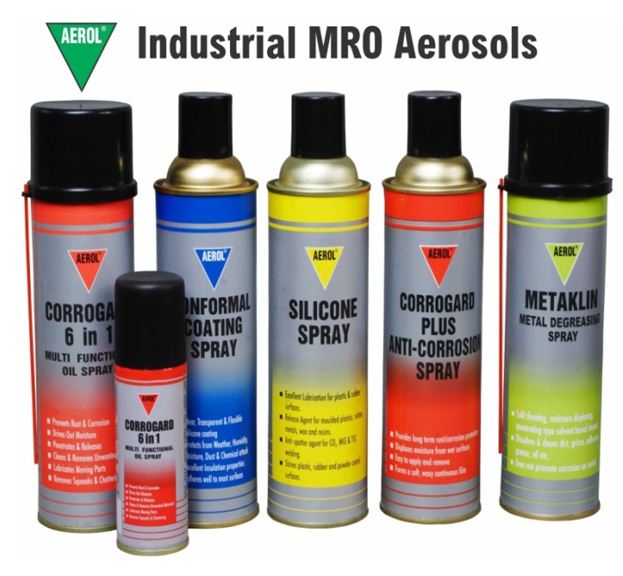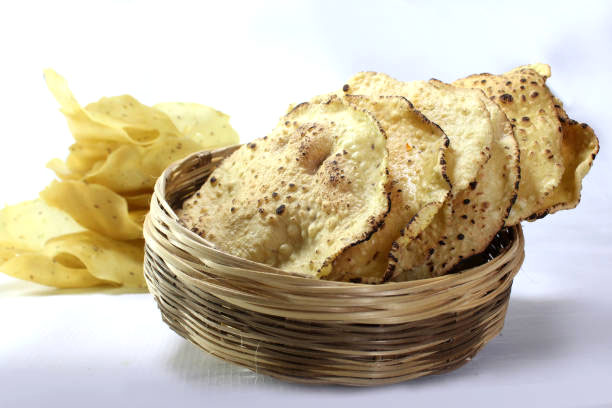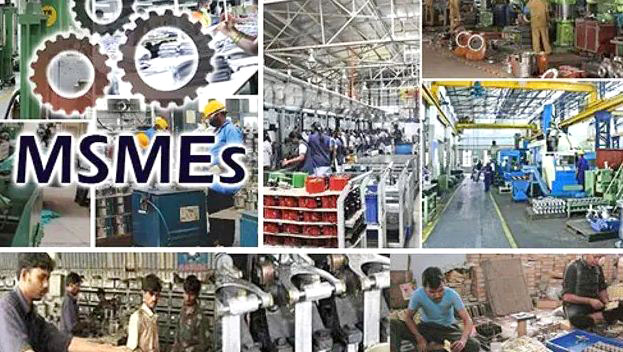By Chanakya
The growth of India can be charted through the growth of its MSME sector. India’s small-scale industry sector has played a significant role in the country’s economic growth over the past few decades. Small scale industries (SSIs) are typically defined as businesses that employ fewer than 50 employees and have an investment in plant and machinery of up to Rs 10 crore. They often provide employment opportunities and contribute to the local economy.
The growth of the SSI sector can be traced back to the post-independence era, when the Indian government recognized the importance of promoting small businesses to support economic development. In 1950, the Industrial Policy Resolution was introduced, which focused on promoting small-scale industries in the country. The government introduced a range of incentives such as tax exemptions, subsidies, and low-interest loans to encourage the growth of small businesses.
The SSI sector saw rapid growth in the 1960s and 1970s, with the number of small businesses increasing from 14,000 in 1951 to more than 600,000 in 1991. The sector also contributed significantly to the country’s industrial output and employment generation, becoming the second-largest employer after the agriculture sector.


However, the sector faced a range of challenges in the 1990s, including increasing competition from large corporations, a lack of access to credit, and outdated technology. In response, the Indian government introduced a range of policies aimed at promoting the growth of small businesses. These included the establishment of the Small Industries Development Bank of India (SIDBI) in 1990, which provides financial assistance to small businesses, and the introduction of the Micro, Small, and Medium Enterprises Development Act in 2006, which aims to promote the growth of small businesses through a range of measures.
Despite these efforts, the SSI sector has faced significant challenges in recent years, including increased competition from large corporations, a lack of access to finance, and a shortage of skilled labour.
The COVID-19 pandemic has further exacerbated these challenges, with many small businesses struggling to survive due to the economic downturn and lockdowns.
In recent years, there has also been a shift towards digitalization, with many small businesses adopting new technologies to improve their operations and reach new customers. However, many small businesses continue to struggle with the high cost of technology adoption and the lack of access to training and support.
According to the government’s Nivesh Mitra, the manufacturing MSMEs of India contributes around 6% to the country’s GDP, 33% to the manufacturing sector and 45% to the exports. With around 361.76 lakh registered and unregistered MSMEs in the country, the sector provides employment to 805.24 lakh people, making it the second largest employer in India after agriculture sector. Out of total registered MSMEs in India – 67% are manufacturing SMEs while around 33% are into service sector.
Besides providing wide range of services, the sector is engaged in manufacturing of over 6,000 products from traditional to hi-tech items. MSME in India has the potential to increase the share of contribution to GDP to about 15 per cent by the year 2020.With the increase in MSME contribution to the GDP, there is a potential to increase its contribution to employment to over 50per cent over the next decade. It is also vital for the informal MSMEs who are currently not registered need to be made part of the formal MSMEs eco system.
Growth incentives in the form of privileges and direct benefits for the MSMEs will encourage registration and participation in the growth opportunity. Typically, MSME sector can provide comparatively larger employment opportunities at comparatively lower capital cost, especially in the rural and remote areas, by becoming part of the industrial ecosystem and act as ancillary units for large enterprises to support the system in growth.
In this section – we will run this as a series – we will study some interesting MSME sector industries and firms that have come up with stellar performances, both in the manufacturing and service sectors. These are companies that have become pioneers in their respective categories and sub-categories.
Aerol Formulations Pvt Ltd
This fortnight we talk about a company called Aerol Formulations Pvt Ltd, based in New Delhi. This had been recently ranked as one of the top performing MSMEs, in the category of Small Manufacturing.
The company’s website says that they are “one of the leading manufacturers and exporters of a comprehensive range of industrial chemical products that find extensive application in varied industry verticals. Formulated using quality assured chemicals, these industrial chemical products are offered to our clients in properly backed canes and jars for non leakage. We are also offering our clients with aerosol based personal, home and auto care products. Our wide range of industrial chemical products includes silicone free spray, corrosion preventives, industrial coatings, silicone emulsions, industrial MRO aerosols, MRO aerosol products, tire shiner spray, metal rust preventives, industrial rust preventives, toiletries and fragrance products and others.”


It is interesting to read that this niche sector has paid such good dividends for this company, which proves that opportunities lie in special corners of life and one nedsd to find it.
As the basic business concept says: Find a recurring problem and seek its answer. That answer, if properly put in a business model, is the source for success. This company has identified the right niche.
The company was incorporated in 1989, slowly growing into a dynamic organization that manufactures and exports industrial chemical products for a wide variety of customers in India and overseas. The range includes Speciality Release Agents, Lubricants & MRO Aerosols, Silicone & Consumer Products.
Aerol manufactures over 300 chemical products that directly or indirectly make products more efficient and reliable and our lives more comfortable.
The business approach has been professional. The company is professionally managed and has a team of dedicated professionals who continuously strive to improve, improvise and deliver products that satisfy its customers.
Visit this site for more information: https://www.aerol.in/aboutus.html
The small scale wonder
Not all can invest big amounts, starting mega factories or service sector operations. Most, including the likes of Amazon, started very small, before scaling up. So what can a person do if he/she has little capital to invest?
Here are some traditional opportunities.
Cake baking business: If it sounds too small, that is because it is.This business is becomingpopular, because of the low risk and low investment, apart from the fact that it needs very little space to start. If marketed well, it is also very profitable. Orders can be sought off-line or online, starting with friends and family, before scaling up.
This is an urban business, mainly, and cakes are sought for all occasions these days, so there is no ‘season’, so to say. However, during Christmas and News Year the business sees huge growth.


Pickles: Again, this might sound small, till you realise the amount of pickles that are consumed and fly off shelves in a month. The trick, of course, is to be able to design and make a new variety, or bring back an old, forgotten variety. Popular in Indian households, they are increasingly being used at large gatherings.
Home-made pickles are healthier and more reliable. An average investment of Rs. 20,000 to Rs. 25,000 may be sought for starting a small-scale pickle business at home.
Handmade chocolates: This is another niche product, but you need to have a very good sense of chocolate making and use the right and best ingredients. It is not just for children, but every these days like a good chocolate, even the ‘dark’ variety.
Homemade chocolates are one of the best businesses as people love to get different flavoured chocolates that are made at home.


It is estimated that an investment of about Rs 40,000 to Rs 50,000 would be required for procuring raw materials and for packaging. The advantage of this business is that it can be done at home and can be stored for a long.
Papad and other roasted/fried snacks: Papad is a hot favourite in Indian households. Then are other roasted/fried snacks such as chips and Fryums (brand name). This demand is due to the fact that rice is a major part of the meal we consume and such fried snacks taste well with any form of rice. Ingredients including wheat, oil, flour, and spices are generally required for starting such a business.
The investment for such a business ranges from Rs 30,000 to Rs 40,000. This business can be done at home, making it advantageous to entrepreneurs.
Organic soaps: In th is world of high volume synthetic soaps and body wash liquids, organic soaps are in high demand, because of their uniqueness and because they have good skin benefits. Raw materials such as oil, microwave oven, moulds, herbs, etc. to make an organic business.


An investment of about Rs 1.5 lakh to Rs 2 lahks would be required for a production that is scaled.
There is a world of other products, but we will deal with companies that have made a name in many or some, over the coming fortnights.





















